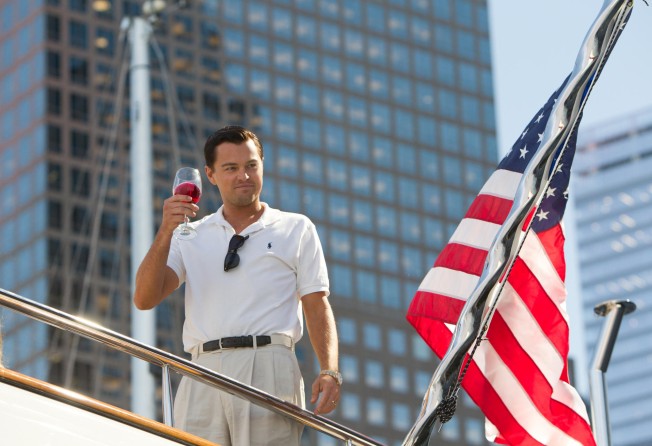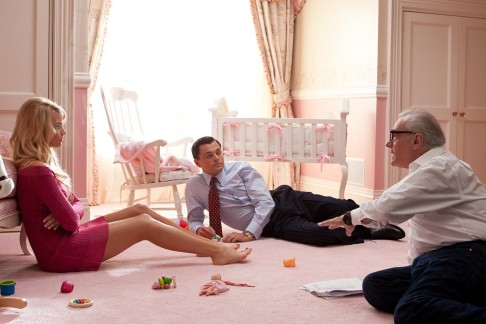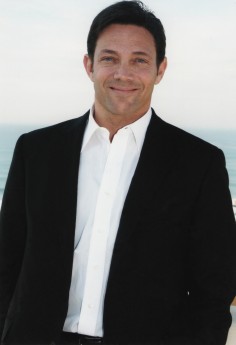Martin Scorsese explains why The Wolf of Wall Street goes to extremes
Director Martin Scorsese tells Richard James Havis why his latest film knows no boundaries

Are people born bad, or is it their environments that make them that way? That question has underpinned the work of director Martin Scorsese as far back as 1976's Taxi Driver.
With a little help from his frequent collaborator and friend Leonardo DiCaprio, the filmmaker explores the question once again in The Wolf of Wall Street, a loud, brash and often outrageous film set in the New York financial district during the late-1980s.
Based on a true story, the film follows the rise of Jordan Belfort (DiCaprio), an immoral beast of a man who abandons a career as a legitimate stockbroker to play on the gullibility and greed of humble investors who can ill afford to lose their cash.
He and his cohorts amass millions of dollars with their underhand "pump and dump" schemes, which involve hyping up a stock until the price rises, then selling it quickly to make a profit at the expense of the other investors.
Belfort used his vast wealth to fund an excessive lifestyle: yachts, McMansions, prostitutes, and endless supplies of cocaine and Quaaludes, his drug of choice. Although the FBI and Securities and Exchange Commission (SEC) zeroed in on his company, lax government regulation during the period meant they had difficulty making any charges stick. Cue, as DiCaprio calls it, the story of "a modern day Caligula".
Speaking from his native New York, the 71-year-old Scorsese still seems fascinated by the depths to which the now 51-year-old Belfort would stoop in the pursuit of ever more cash. Belfort, from whose 1998 memoir the film is adapted, consulted on the movie and has a cameo in it.
"Our film just scratches the surface of what really went on," the director says, referring to the excesses that appear on screen.
"I wanted to try and find out what they were all thinking, and I wanted to find out how their minds worked. I was fascinated by their ignorance, and I wanted to know why they were acting that way."
"He got away with so much, but he just wanted to do even more," Scorsese says, referring to Belfort's inability to quit while he was on top, before the FBI and the SEC managed to make a charge stick.
"His father and his lawyer told him, 'Get out of it now, you got away with it!', but he wouldn't listen. He just couldn't seem to resist taking advantage of people. That seemed to come so naturally to him."

"Look at young people and what the American Dream means to them. It's all about accumulating more, and doing what is best for you, in spite of how it affects anyone else.
"This is rampant today. So it's very important to analyse his nature," adds DiCaprio, whose portrayal of Belfort exudes a brutish animalism that keeps the viewer interested, in spite of the character's off-putting bargain-basement persona.
"He was a minnow in the bigger scheme of things - there are much more powerful people trying to rob America, like all the financial institutions," the actor says. "Belfort is hedonistic, and he only thinks of himself. That is very representative of our times. We are living in a bizarre time."
The Wolf of Wall Street is intense, and scenes of degrading misbehaviour and foolishness bombard the viewer. There are Roman-style orgies with dancing prostitutes, lowbrow escapades with sex and drugs, and crude and offensive behaviour that involves all manner of bodily parts.
In one scene, Belfort is so high, that he doesn't realise he has crashed his car. The obscenities keep coming thick and fast, because that's how the misguided characters lived their lives, Scorsese says.

The orgy scenes are vast, and they involved a choreographer to make sure the strippers and naked participants hit their marks in front of the cameras. "I was too busy concentrating on the filming to really notice all the nudity," Scorsese laughs.
Though The Wolf of Wall Street is often laugh-out-loud funny, it is no comedy. Scorsese says that he wasn't really looking to portray humour, it's just that Belfort and company are so ridiculous that you can't help but laugh at them.
"I'm not sure that the humour is cynical, as I don't think these guys are clever enough to get cynicism," he says. "It's kind of funny, but it's also not funny."
Without these laughs, the film would probably be too grim to watch. "The humour gets you through it, and what they do is funny within the context of the truth of their situation," the director says.
"It's not pleasant, and the ability to see humour in situations that are atrocious is part of our defence mechanism. That's why we laugh at things like this."
Although the film now reflects on the behaviour of the financial institutions that caused the recent financial crisis, the project was conceived before then. The 2009 crisis actually scuppered the film, explains Scorsese. "We were going to make it before the financial crisis, but when that hit, we couldn't do it, as it was going to cost too much money."
The film was saved by independent company Red Granite Pictures - one of whose co-founders, Riza Aziz, is from Malaysia, where The Wolf of Wall Street has been banned.
DiCaprio says that the financial crisis makes a movie about Belfort's antics even more relevant. "We keep acting as if there are endless resources, and we can keep expanding with any kind of consequences," he says.
"The almighty dollar seems to rule everything, people are suffering. It's almost like a war zone out there," he adds.
So can a film like this make a difference? Scorsese says he thinks that movies do have the power to effect changes in our behaviour.
"I hope films can make the world a better place. I look back to Italian neo-realism, and that appeared to change things, as it opened up a kind of compassion for former enemies [of the second world war]. Cinema changed the whole nation of Italy, the whole culture."
Despite wolves like Belfort, Scorsese is surprisingly optimistic.
"I think we want to be good, and I think there's hope," he says.
The Wolf of Wall Street opens on February 13